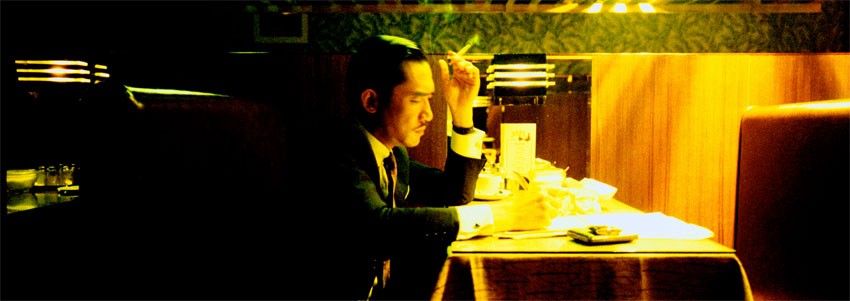The Chinese Cinema

Four years ago, in the spring of 2013, I caught a particularly vicious strain of cinephilia. I’d been a guest on the They Shot Pictures podcast a couple of times, talking about Josef von Sternberg, Yasujiro Ozu and Mikio Naruse, and we decided to sneak in an episode on Johnnie To before my second child was due at the end of March. To was a director I thought I knew fairly well, having caught a handful of his works over the years, but I quickly learned that his filmography was far more extensive, and varied, than I’d imagined. I spent six weeks watching almost nothing but his films and still didn’t manage to see them all before we recorded the show, which as a result covered only his Milkyway Image period. The next few months were a blur, as anyone who’s had a newborn in the house understands, but by the middle of May, I was pretty regularly heading into Seattle to pick up a week’s worth of movies from Scarecrow Video. It was usually the kind of eclectic blend that I’d been watching and writing about for years: silent films, Classic Hollywood, European movies, along with a sidelong glance at the new action cinema then trending under the Vulgar Auteurism label. But one day I snagged Sammo Hung’s Eastern Condors on a whim: I’d never seen a Sammo film before, I knew him only from his late 90s CBS TV series with Arsenio Hall, and from then on there was no escape: I’d caught the Chinese Cinema bug.
Within a week I’d declared the summer of 2013 to be the Summer of Sammo, and spent the next three months devouring Hong Kong films, more than 80 of them in the end, ranging from Shaw Brothers classics to hard-to-find New Wave masterpieces to oddball 80s and 90s comedies. The Summer ended, but I couldn’t let it go and by November I’d begun the Running Out of Karma project, which was intentionally designed as a digressive, rambling look at Hong Kong film history with a chronological exploration of Johnnie To’s career forming the spine of the work. But the digressions quickly took over: I covered To’s first three films in the final two months of 2013, but then only wrote about one film each in 2014 and 2015, and two in 2016 (I did write about six of his other films during that time, but out of order). In that time I’ve seen over 340 Chinese-language films, and written long reviews of more than 100 of them. So clearly, roping it all under the rubric of a Johnnie To project has become increasingly absurd, and the index I’ve used to link to all my reviews has become unmanageably long. Compounding my organizational trouble is that halfway through the project, I moved from blogger over to wordpress, which meant that all my old links, in both reviews and indices, go to the old website, and all my old reviews look poorly formatted on the new website.
So what I want to do is scrap the whole chronological To conceit and reorganize all the old reviews, from Running Out of Karma, the Summer of Sammo, and my pre-Sammo years, along with all my future writings, into one massive project called The Chinese Cinema. The callback to Andrew Sarris’s book The American Cinema is intentional: I’m going to sort everything by director, and group each director in slightly modified versions of Sarris’s categories (Pantheon, The Far Side of Paradise, Expressive Esoterica, etc). It’s not the only possible way to organize such a large subject, or the only valuable one, but it’s the one I’m most comfortable with both because I’m a classical auteurist at heart and because it’s the most open-ended approach, the one most easily built-upon and revised over time.
This will entail a lot of editing of those old reviews, some of them are in pretty poor shape, not just in formatting but grammatically and orthographically. But it will create a much firmer foundation for the work going forward, and should make the site much easier to use and to read. And it would even allow me to compile it all into some kind of a book format, if there’s any interest in such a thing. As it stands now, the whole work is well over 200,000 words. And I’ve still got a massive number of Subjects for Further Research. Because the great and terrible thing about cinephilia is that the more movies you watch, the more you understand how many other movies there are that you absolutely need to see.
